
Maputo: The Vibrant Heartbeat of Mozambique
Maputo, the capital of Mozambique, is a city that pulses with life and color. Nestled along the Indian Ocean, it offers visitors a unique blend of cultures, history, and natural beauty. From its bustling markets to its serene coastal views, Maputo is a city that promises a rich and varied experience. Begin your journey in the historic Baixa district, where colonial architecture meets modern vibrancy. Here, you can explore the Central Market, a lively hub full of local produce, crafts, and spices. Don't miss the iconic Railway Station, often hailed as one of the most beautiful in the world, designed by the same architects who created the Eiffel Tower. For a taste of local culture, visit the FEIMA arts and crafts market or take a stroll along Avenida Julius Nyerere, lined with galleries, cafes, and shops. The city's culinary scene is a delightful mix of Portuguese and African flavors, with seafood taking center stage. Be sure to try peri-peri prawns and Matapa, a traditional dish made from cassava leaves. No visit to Maputo is complete without exploring its natural beauty. The nearby Inhaca Island offers pristine beaches and excellent snorkeling opportunities. For a more relaxed day, head to the Jardim Tunduru Botanical Gardens, a lush oasis in the heart of the city. Whether you're an adventure seeker or a history buff, Maputo has something to offer everyone.
Local tips in Maputo
- Visit the Central Market early in the morning to experience the freshest produce and vibrant local atmosphere.
- Use metered taxis or reputable ride-sharing apps for safe and reliable transportation around the city.
- Carry some cash, as not all places accept credit cards, especially in local markets.
- Dress modestly when visiting religious sites and respect local customs and traditions.
- Stay hydrated and use sunscreen, as Maputo can get very hot, especially during the summer months.
- Learn a few phrases in Portuguese, the official language, to enhance your interactions with locals.
- Try to visit during the cooler months from May to November for more comfortable weather conditions.
Maputo: The Vibrant Heartbeat of Mozambique
Maputo, the capital of Mozambique, is a city that pulses with life and color. Nestled along the Indian Ocean, it offers visitors a unique blend of cultures, history, and natural beauty. From its bustling markets to its serene coastal views, Maputo is a city that promises a rich and varied experience. Begin your journey in the historic Baixa district, where colonial architecture meets modern vibrancy. Here, you can explore the Central Market, a lively hub full of local produce, crafts, and spices. Don't miss the iconic Railway Station, often hailed as one of the most beautiful in the world, designed by the same architects who created the Eiffel Tower. For a taste of local culture, visit the FEIMA arts and crafts market or take a stroll along Avenida Julius Nyerere, lined with galleries, cafes, and shops. The city's culinary scene is a delightful mix of Portuguese and African flavors, with seafood taking center stage. Be sure to try peri-peri prawns and Matapa, a traditional dish made from cassava leaves. No visit to Maputo is complete without exploring its natural beauty. The nearby Inhaca Island offers pristine beaches and excellent snorkeling opportunities. For a more relaxed day, head to the Jardim Tunduru Botanical Gardens, a lush oasis in the heart of the city. Whether you're an adventure seeker or a history buff, Maputo has something to offer everyone.
When is the best time to go to Maputo?
Iconic landmarks you can’t miss
Tunduru Gardens
Explore Tunduru Gardens in Maputo, a serene urban park filled with exotic plants, vibrant flora, and tranquil paths perfect for relaxation and exploration.
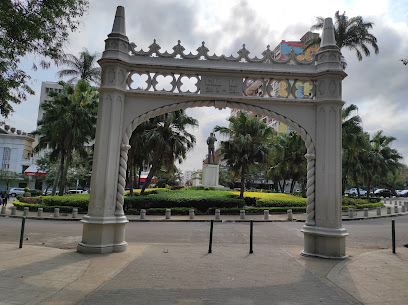
WORKERS SQUARE
Explore Workers Square, a vibrant monument in Maputo celebrating the spirit of labor and the rich culture of Mozambique, where history meets modern life.
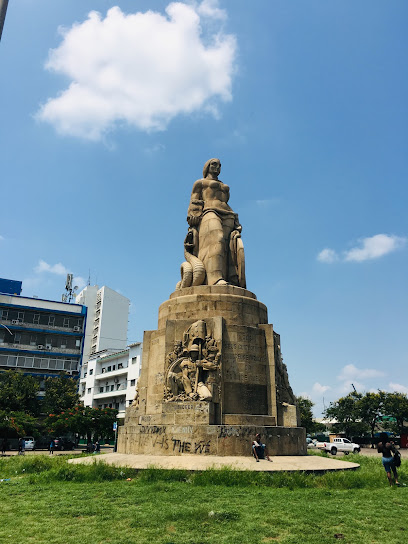
Estádio do Zimpeto
Experience the thrill of sports and local culture at Estádio do Zimpeto, Maputo's premier stadium for unforgettable events.
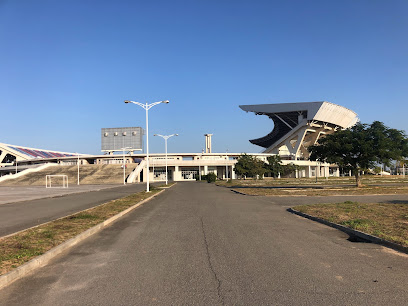
Polana Serena
Discover the elegance of Polana Serena, a luxurious hotel in Maputo, Mozambique, blending rich history with modern comforts and stunning ocean views.
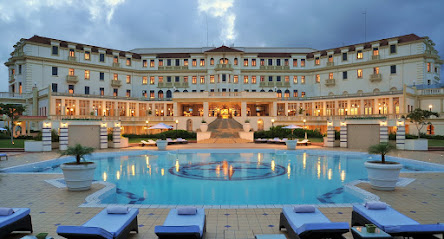
Central Market
Discover the vibrant Central Market in Maputo, where local culture, fresh produce, and unique crafts come together in a lively atmosphere.
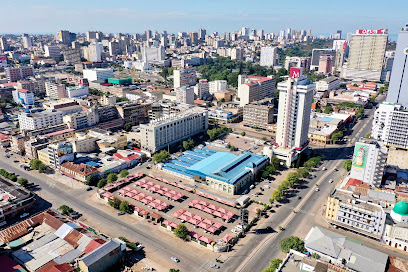
Hotel Cardoso
Experience the perfect blend of comfort and culture at Hotel Cardoso, your ideal retreat in the heart of Maputo with stunning bay views.

Museu de Historia Natural
Explore the Museu de Historia Natural in Maputo, a captivating museum showcasing Mozambique's rich biodiversity and geological history.
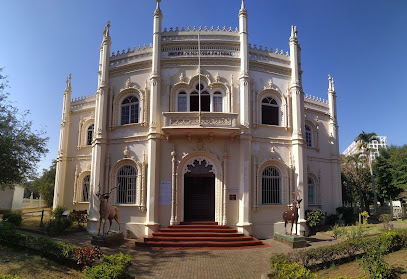
Fortress of Maputo
Discover the Fortress of Maputo, a historical museum offering insights into Mozambique's colonial past and stunning views of the vibrant waterfront.
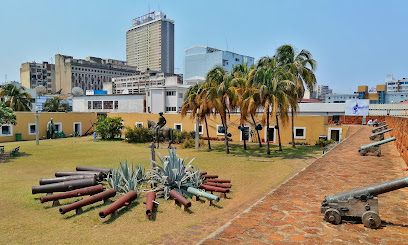
Feira de Artesanato, Flores e Gastronomia de Maputo
Explore the Feira de Artesanato, Flores e Gastronomia de Maputo for a taste of Mozambique's vibrant culture, handicrafts, and culinary delights.
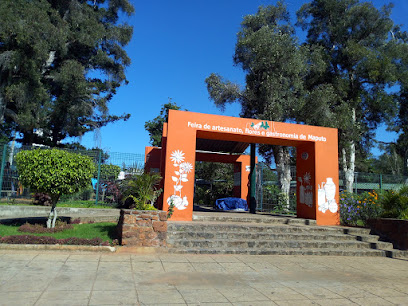
Maputo Bay
Explore the beauty of Maputo Bay, a stunning coastal destination in Mozambique, perfect for relaxation, adventure, and breathtaking sunsets.
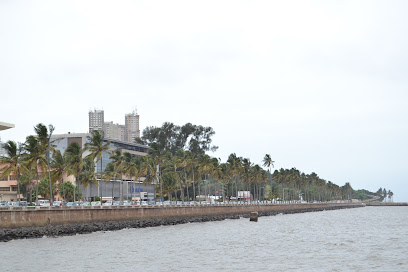
Franco-Mozambican Cultural Center
Discover the Franco-Mozambican Cultural Center, where art and culture blend harmoniously in the heart of Maputo, offering a unique glimpse into the local heritage.
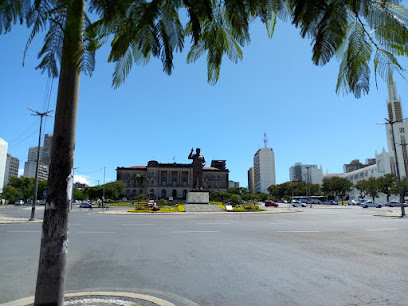
Praca dos herois mocambicanos
Explore the rich history and cultural significance of Praca dos Heroes Mocambicanos, a tribute to Mozambique's heroes in the heart of Maputo.
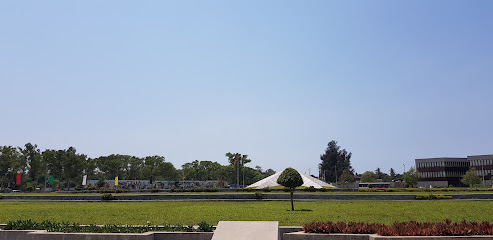
Catedral de Maputo
Discover the stunning Catedral de Maputo, a blend of Gothic and Moorish architecture, a spiritual haven in the heart of Mozambique's capital.
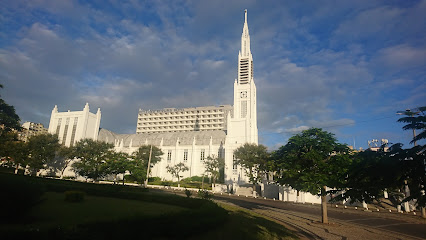
Maputo Special Reserve
Explore the stunning landscapes and diverse wildlife of Maputo Special Reserve, a hidden gem for nature lovers and adventure seekers in Mozambique.
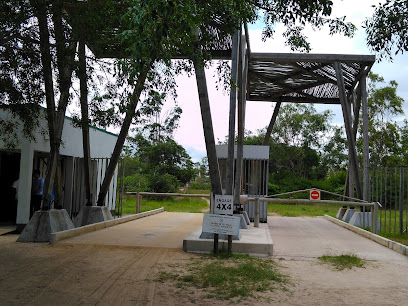
Museu Nacional de Arte
Explore Mozambique's vibrant cultural heritage at Museu Nacional de Arte, showcasing contemporary and traditional art from talented local artists.
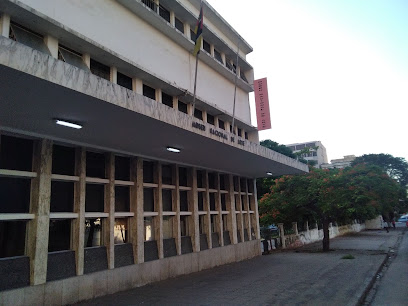
Unmissable attractions to see
Tunduru
Explore Tunduru Gardens in Maputo for a serene escape filled with exotic flora, cultural events, and tranquil pathways.
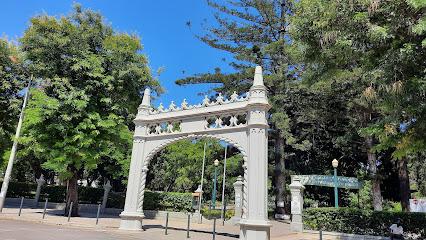
Estádio do Zimpeto
Experience the vibrant atmosphere of Estádio do Zimpeto, a central hub for sports and culture in Marracuene, Mozambique.
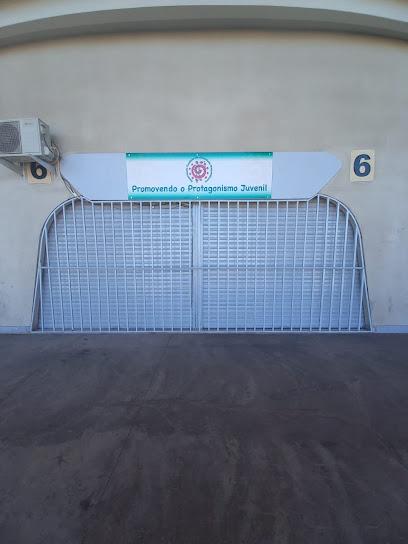
WORKERS SQUARE
Explore Workers Square in Maputo: A vibrant monument where culture, history, and local life converge in Mozambique's bustling capital.
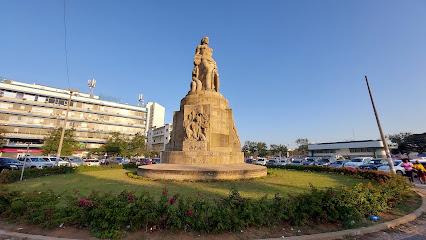
Feira de Artesanato, Flores e Gastronomia de Maputo
Experience the colorful crafts, delicious local cuisine, and vibrant atmosphere at the Feira de Artesanato, Flores e Gastronomia de Maputo, a cultural gem in Mozambique.
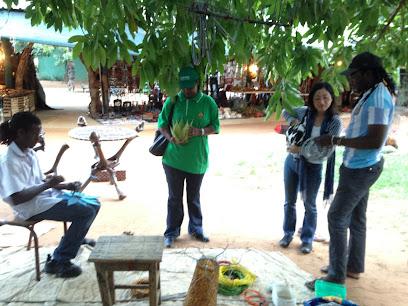
Fortress of Maputo
Discover the historical essence of Mozambique at the Fortress of Maputo, where colonial heritage meets stunning coastal views.
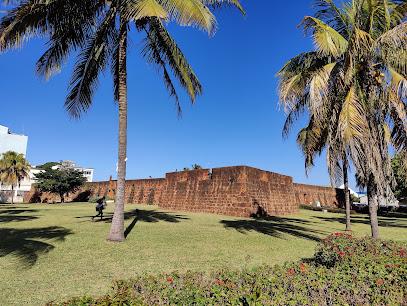
Museu de Historia Natural
Explore the fascinating biodiversity of Mozambique at the Museu de Historia Natural, a highlight for tourists seeking nature and culture in Maputo.
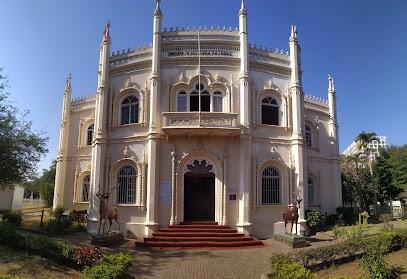
Saint Anthony Catholic Church
Explore the architectural beauty and serene atmosphere of Saint Anthony Catholic Church, a cultural gem in the heart of Maputo.
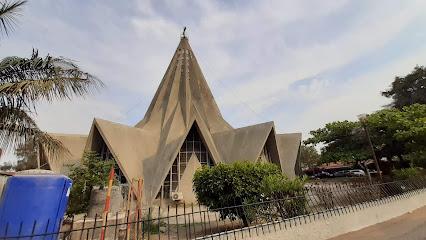
Franco-Mozambican Cultural Center
Explore the Franco-Mozambican Cultural Center in Maputo, a vibrant hub for art, culture, and community showcasing the best of Mozambican heritage.
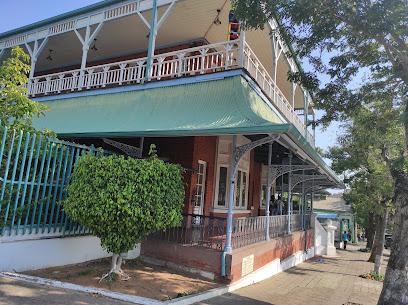
Catedral de Maputo
Explore the architectural beauty and rich cultural heritage of the Catedral de Maputo, a must-see landmark in Mozambique's vibrant capital.
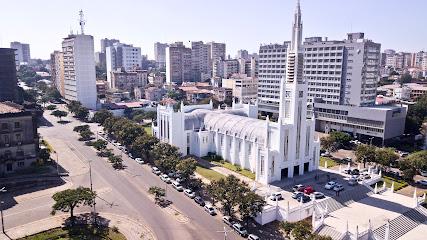
Museu Nacional de Arte
Discover the artistic soul of Mozambique at the National Museum of Art in Maputo, showcasing a rich collection of local and African artworks.
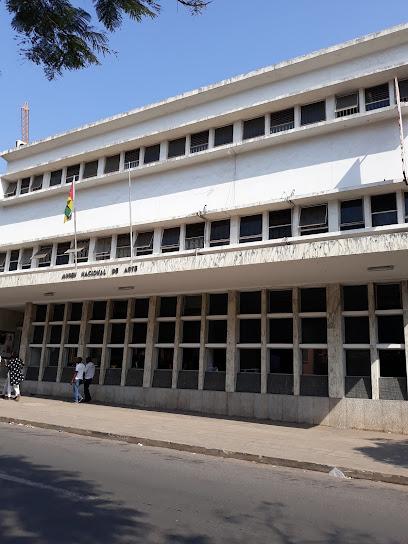
Brazil-Mozambique Cultural Center
Explore the Brazil-Mozambique Cultural Center in Maputo, where art, history, and cultural connections come alive in a vibrant setting.
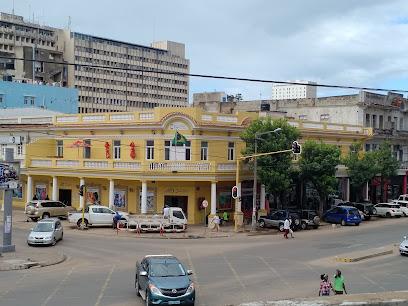
Centro Social & Cultural Do Núcleo De Arte
Experience the artistic and culinary delights of Maputo at Centro Social & Cultural Do Núcleo De Arte, a cultural gem showcasing local talent.
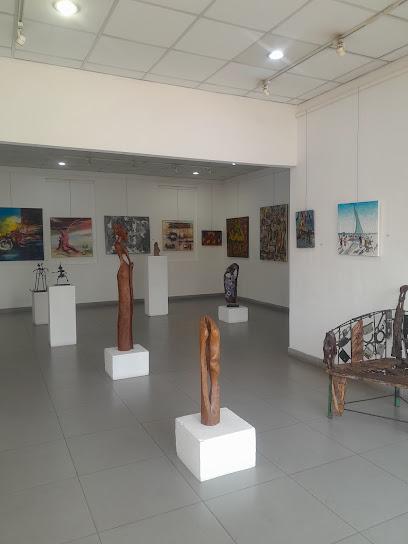
Casa de Ferro
Discover Casa de Ferro, an iconic historical landmark in Maputo, showcasing exquisite iron architecture and rich cultural heritage.
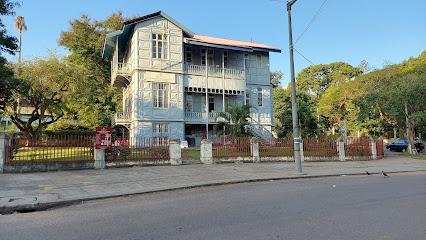
Jumma Masjid
Explore Jumma Masjid, a stunning mosque in Maputo, showcasing exquisite architecture and rich cultural heritage in a serene atmosphere.
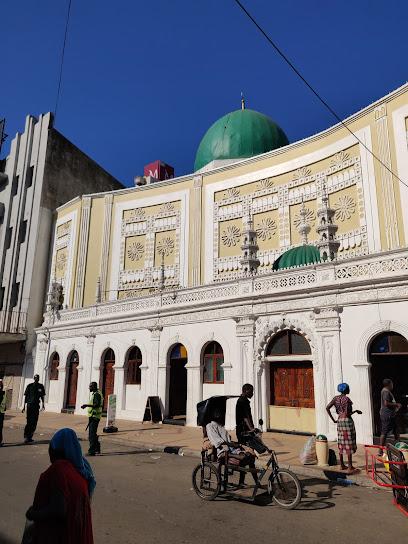
Portuguese Island
Explore Portuguese Island, a breathtaking tropical escape in Mozambique, renowned for its stunning beaches, vibrant marine life, and rich history.
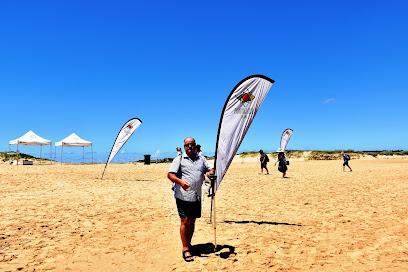
Essential places to dine
Mundo's
Experience the rich flavors of Mozambique at Mundo's, where vibrant cuisine meets warm hospitality in the heart of Maputo.
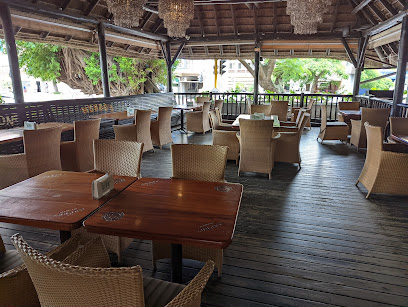
Zambi
Discover Zambi in Maputo: where exquisite Mozambican flavors meet vibrant ambiance for an unforgettable dining experience.
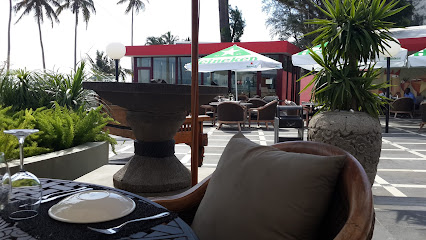
Dhow Restaurant
Experience exquisite cuisine and vibrant local art at Dhow Restaurant in Maputo - where every meal is a masterpiece.
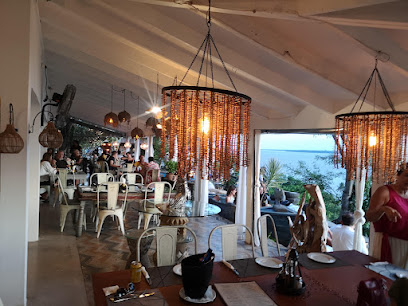
South Beach Maputo
Experience exquisite dining at South Beach Maputo - where local flavors meet stunning ocean views in Mozambique's vibrant capital.
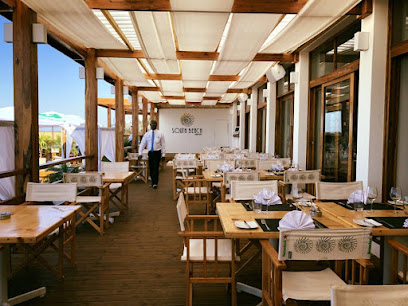
Maputo Waterfront
Discover Maputo Waterfront: where vibrant culture meets stunning ocean views and delightful culinary experiences.
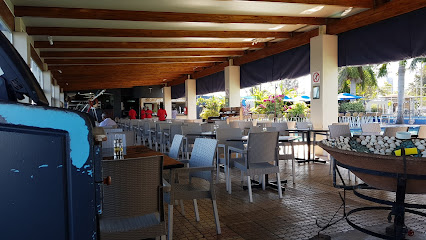
Galaxy Indian Restaurant
Experience authentic Indian cuisine at Galaxy Indian Restaurant in Maputo – where every dish tells a story through rich flavors and spices.
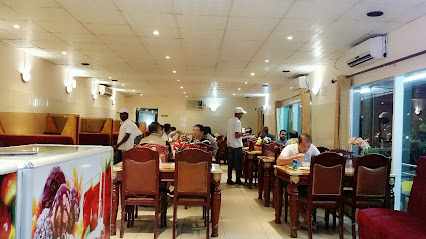
Píri Píri
Experience the vibrant flavors of Mozambique at Píri Píri—home to exquisite Piri Piri chicken and local culinary delights in Maputo.
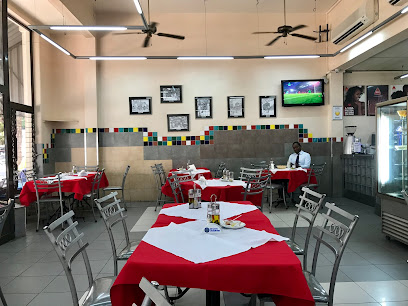
Restaurant Costa do Sol
Experience authentic Mozambican cuisine with breathtaking ocean views at Restaurant Costa do Sol in Maputo.
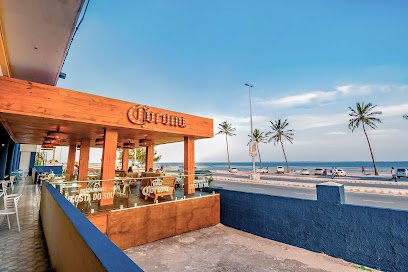
Sagres
Experience authentic Mozambican seafood at Sagres in Maputo - a must-visit culinary gem for every tourist.
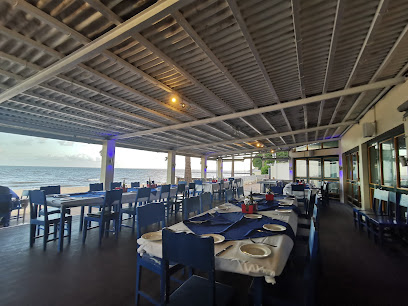
Campo Di Mare
Experience authentic Italian cuisine at Campo Di Mare in Maputo - where every meal is a celebration of flavor and hospitality.
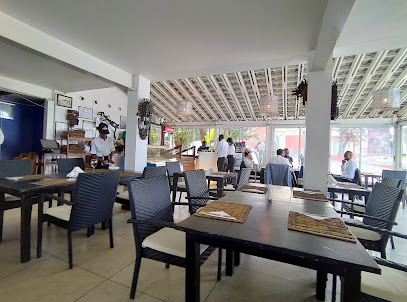
Txhapo Txhapo Restaurante
Experience authentic Mozambican cuisine at Txhapo Txhapo Restaurante in Maputo - where tradition meets flavor.
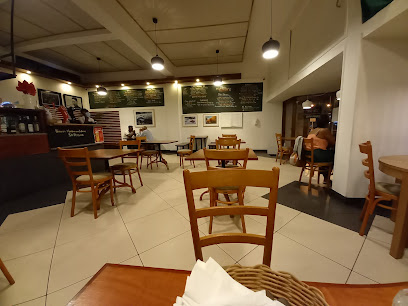
A Nossa Tasca
Experience authentic Mozambican cuisine at A Nossa Tasca in Maputo—where every dish tells a story.
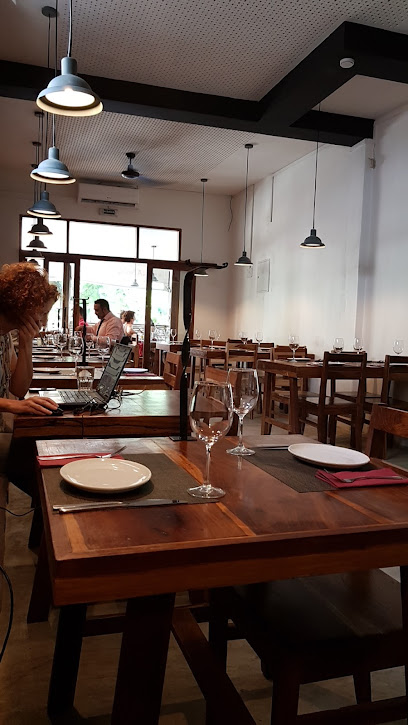
Spazio Restaurant
Experience authentic Italian flavors at Spazio Restaurant in Maputo - where every meal is a delightful culinary adventure.
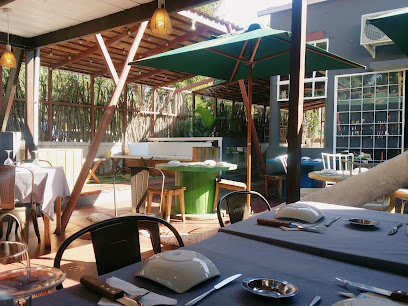
Meia Tigela
Experience authentic Mozambican cuisine at Meia Tigela in Jardim Dona Berta – a must-visit restaurant for food lovers in Maputo.
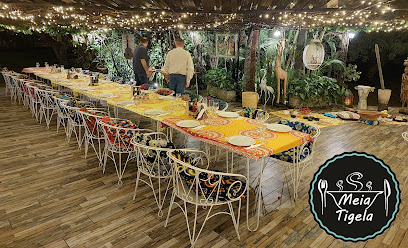
Campo de Fiori
Experience authentic Italian cuisine at Campo de Fiori in Maputo - where every dish tells a story.
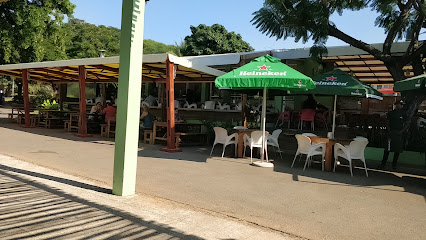
Markets, malls and hidden boutiques
Maputo Shopping Centre
Experience the heart of Maputo at the Shopping Centre, where shopping meets local culture and cuisine in a vibrant atmosphere.
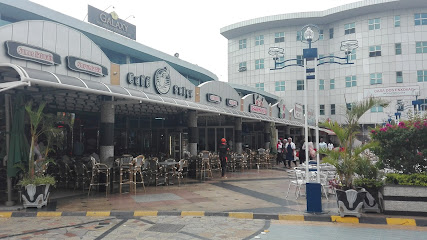
Baía Mall
Discover Baía Mall in Maputo - a vibrant shopping destination that blends local culture with international brands and dining delights.
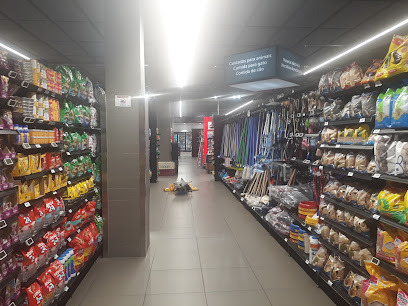
Game Maputo
Explore Game Maputo for an unmatched shopping experience featuring electronics, baby products, and local treasures in the heart of Mozambique.
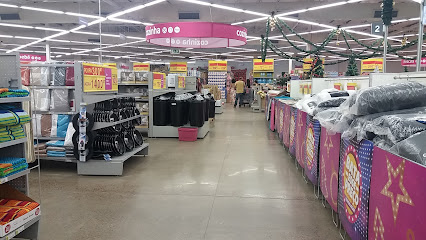
Mr Price Maputo MBS Centre
Explore the vibrant fashion scene at Mr Price Maputo MBS Centre, your go-to destination for affordable and trendy clothing in the heart of Mozambique.
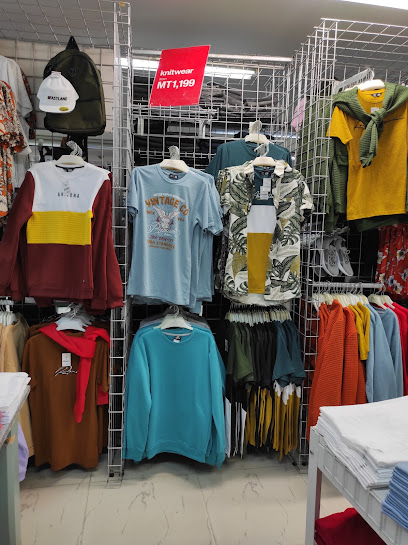
Studio 88 Maputo Shopping Centre
Discover the best of fashion at Studio 88 in Maputo Shopping Centre, featuring clothing, accessories, and footwear for every style.

Tajiri - Home & Decor
Explore Tajiri - Home & Decor in Maputo for unique gifts and home decor that celebrate local craftsmanship and culture.
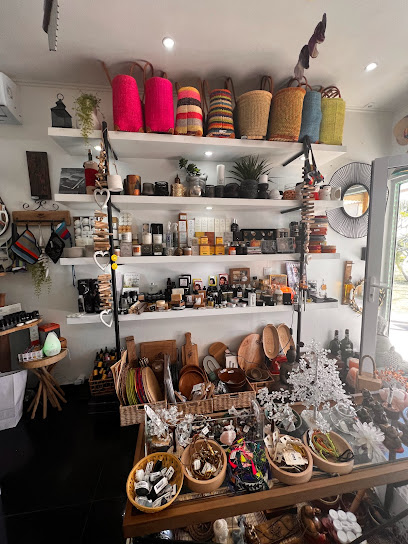
LETMK STORE Moçambique
Explore LETMK STORE Moçambique for unique clothing that reflects the vibrant culture and contemporary fashion of Maputo.

MOZO CONCEPT STORE
Explore Mozo Concept Store in Maputo for unique fashion accessories reflecting local craftsmanship and vibrant culture.
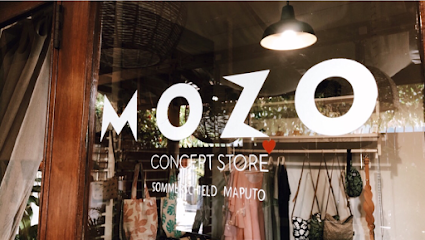
Shop of Socks
Explore the vibrant Shop of Socks in Maputo for unique and stylish footwear that reflects the culture of Mozambique.

Gota Doce
Explore Gota Doce in Maputo for an unforgettable perfume shopping experience, where quality meets affordability and every scent tells a story.
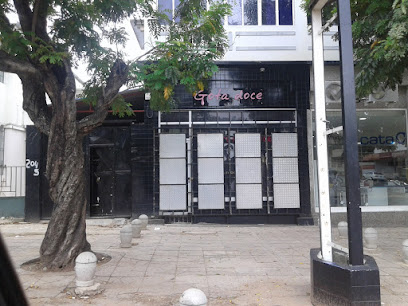
VICENZA 1
Discover unique fashion and local designs at VICENZA 1, your go-to clothing store in the heart of Maputo, Mozambique.
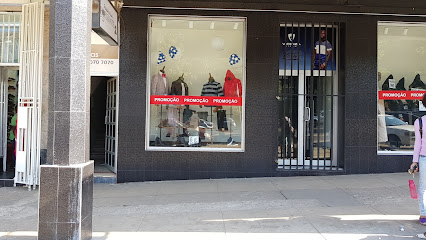
Cidade de Relógios
Explore Cidade de Relógios: Maputo's premier destination for luxury watches and impeccable craftsmanship.
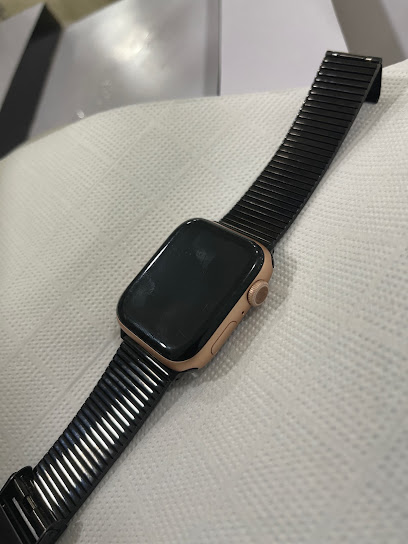
Daqui! - produtos regionais
Explore Daqui! in Maputo for a taste of regional health foods and unique local products that celebrate the essence of Mozambican culture.
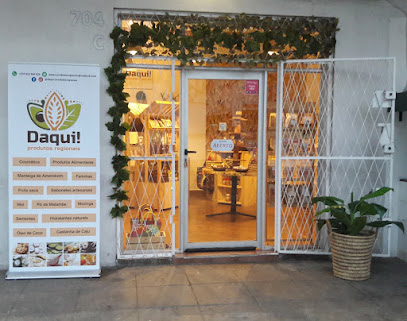
Studio 88 Shoprite Centro Comercial
Discover the latest fashion trends and stylish accessories at Studio 88, Maputo's premier clothing store for Western apparel and chic footwear.
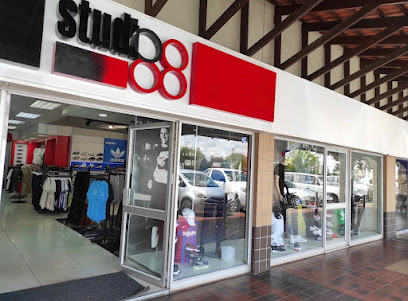
SIM MOÇAMBIQUE
Explore the cutting-edge style of SIM Moçambique, where men's fashion meets local culture in the heart of Maputo.

Essential bars & hidden hideouts
Xima Bar
Discover the vibrant nightlife of Maputo at Xima Bar, where refreshing drinks and lively ambiance create unforgettable experiences.
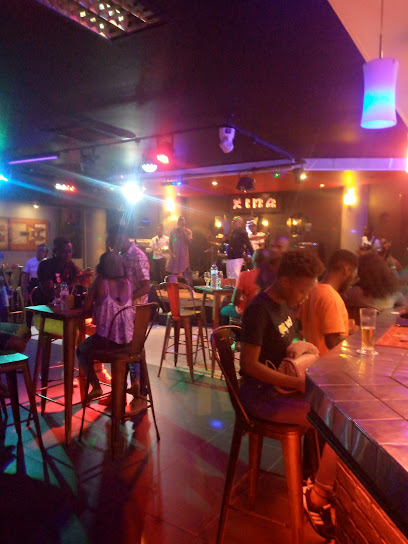
Elvis Pool Bar
Experience the vibrant atmosphere of Elvis Pool Bar in Maputo, where refreshing cocktails meet stunning ocean views.
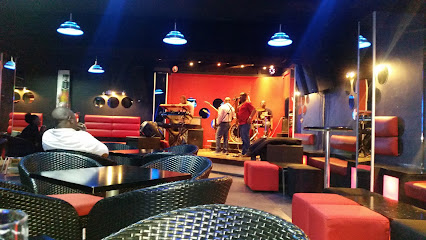
Gypsy's Bar
Experience the vibrant nightlife at Gypsy's Bar in Maputo, where local charm meets refreshing drinks and friendly faces.
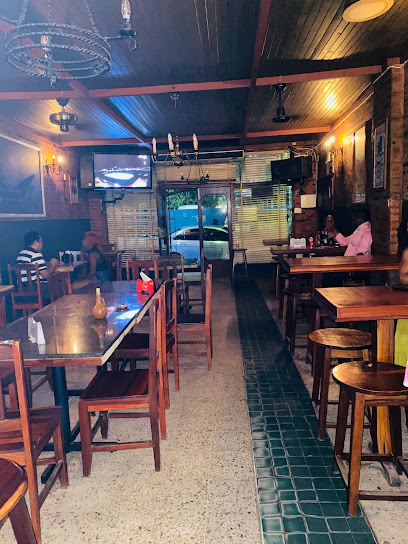
Robson's Bar
Discover Robson's Bar in Maputo - a lively spot with stunning coastal views and a diverse drink menu, perfect for unwinding after a day of exploration.
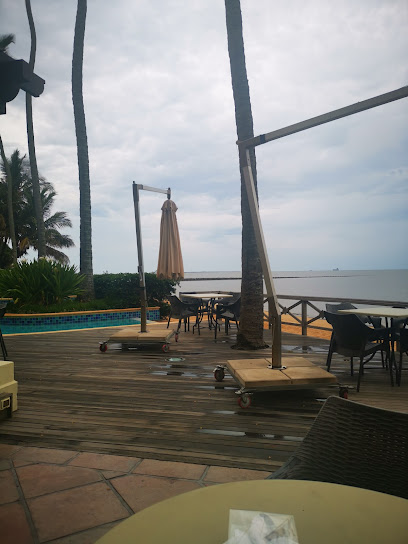
Café Divino Bar & Lounge
Discover the vibrant flavors and lively atmosphere of Café Divino Bar & Lounge, a culinary gem in the heart of Maputo, perfect for food lovers and social butterflies.
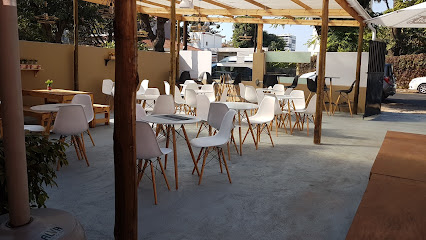
Chill Out Café & Bar
Experience the essence of Maputo at Chill Out Café & Bar, where fantastic drinks meet a relaxed atmosphere in the heart of the city.
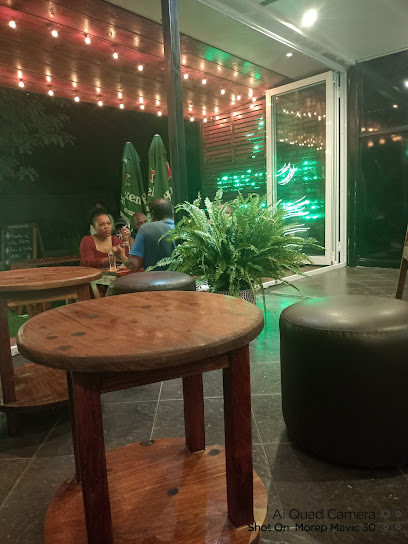
Gil-Vicente Café-Bar
Discover the lively Gil-Vicente Café-Bar in Maputo, where vibrant atmosphere meets delicious drinks and local culture.
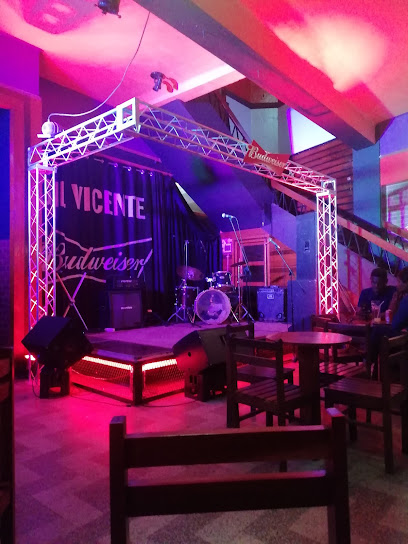
Craft Coffee Bar
Discover the essence of Maputo at Craft Coffee Bar, where artisanal brews and a cozy atmosphere await every coffee lover.
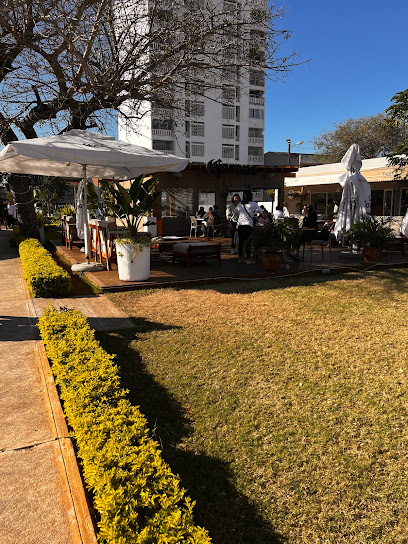
ViN Bar & Lounge
Discover the lively atmosphere of ViN Bar & Lounge in Maputo, where delicious cuisine meets vibrant nightlife and sports entertainment.
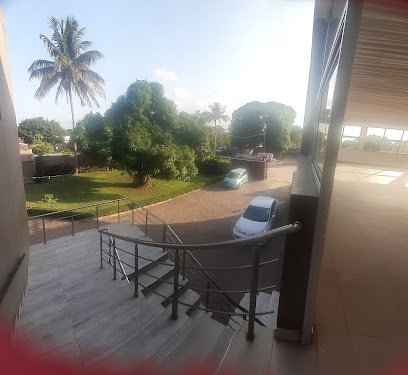
Bicho Papao
Discover the lively ambiance and unique cocktails at Bicho Papao, a must-visit bar in Maputo for tourists seeking an authentic nightlife experience.
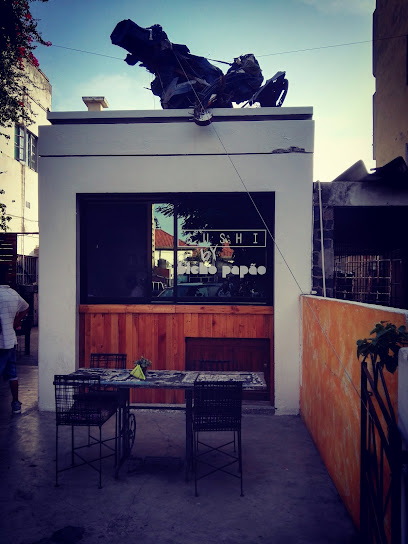
Roots Bar Museu
Experience the vibrant culture and lively atmosphere of Roots Bar Museu in Maputo, where local flavors and music come together.
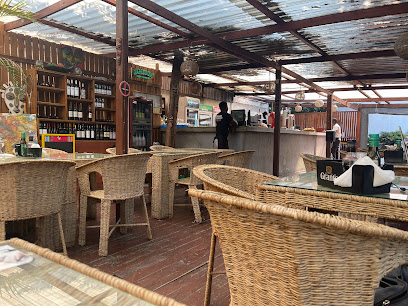
Royal Bar e Restaurante
Experience the vibrant nightlife of Maputo at Royal Bar e Restaurante, where local flavors and lively ambiance meet.
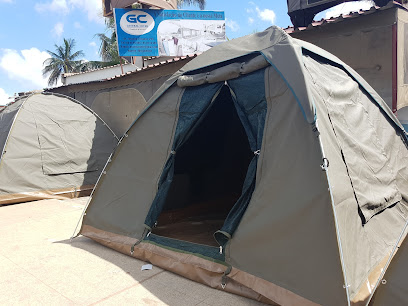
Aibar
Experience the vibrant cocktail culture at Aibar, a premier bar in Maputo, offering a menu rich in flavors and a lively atmosphere.
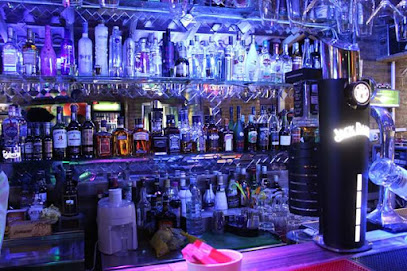
VIVO Lounge
Experience the vibrant nightlife of Maputo at VIVO Lounge, where exquisite cocktails and elegant ambiance create the perfect escape.
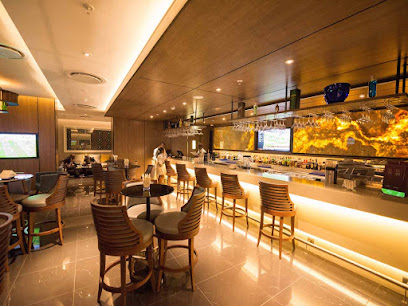
Local Phrases
-
- HelloOlá
[oh-LAH] - GoodbyeTchau
[CHOW] - YesSim
[seem] - NoNão
[nah-oo] - Please/You're welcomePor favor/De nada
[pohr fah-VOHR/deh NAH-dah] - Thank youObrigado/Obrigada
[oh-bree-GAH-doo/oh-bree-GAH-dah] - Excuse me/SorryCom licença/Desculpe
[kohm lee-SEHN-sah/deh-SKUHL-peh] - How are you?Como está?
[KOH-moo ehs-TAH] - Fine. And you?Bem. E você?
[beng/eh voh-SEH] - Do you speak English?Fala inglês?
[FAH-lah een-GLAYS] - I don't understandNão entendo
[nah-oo ehn-TEN-doo]
- HelloOlá
-
- I'd like to see the menu, pleaseGostaria de ver o menu, por favor
[goh-stah-REE-ah deh vehr oo MEH-noo/ pohr fah-VOHR] - I don't eat meatNão como carne
[nah-oo KOH-moo KAHR-neh] - Cheers!Saúde!
[sow-OO-deh] - I would like to pay, pleaseGostaria de pagar, por favor
[goh-stah-REE-ah deh pah-GAHR/ pohr fah-VOHR]
- I'd like to see the menu, pleaseGostaria de ver o menu, por favor
-
- Help!Ajuda!
[ah-ZHOO-dah] - Go away!Vá embora!
[vah ehm-BOH-rah] - Call the Police!Chame a Polícia!
[SHAH-meh ah poh-LEE-see-ah] - Call a doctor!Chame um médico!
[SHAH-meh oong MEH-dee-koo] - I'm lostEstou perdido
[ehs-TOH pehr-DEE-doo] - I'm illEstou doente
[ehs-TOH doo-EHN-teh]
- Help!Ajuda!
-
- I'd like to buy...Queria comprar...
[KEH-ree-ah kohm-PRAR] - I'm just lookingEstou só a ver
[ehs-TOH soh ah vehr] - How much is it?Quanto custa?
[KWAN-too KOOS-tah] - That's too expensiveIsso é muito caro
[EE-soh eh MWEEN-too KA-roo] - Can you lower the price?Pode baixar o preço?
[POH-deh BAHY-shahr oo PREH-soo]
- I'd like to buy...Queria comprar...
-
- What time is it?Que horas são?
[keh OH-rahz sah-oo] - It's one o'clockÉ uma hora
[eh OO-mah OH-rah] - Half past (10)Meio-dia e meia
[MEH-oh-jeeah eh MEH-yah] - MorningManhã
[mah-NYAH] - AfternoonTarde
[TAHR-deh] - EveningNoite
[NOY-teh] - YesterdayOntem
[ohn-TEHM] - TodayHoje
[OH-zhee] - TomorrowAmanhã
[ah-mah-NYAH] - 1Um
[oom] - 2Dois
[DOYSH] - 3Três
[TREHS] - 4Quatro
[KWAH-troh] - 5Cinco
[SEEN-koh] - 6Seis
[SAYSH] - 7Sete
[SEH-teh] - 8Oito
[OY-too] - 9Nove
[NOH-veh] - 10Dez
[dehz]
- What time is it?Que horas são?
-
- Where's a/the...?Onde fica um/o...
[OHN-deh FEE-kah oong/oh] - What's the address?Qual é o endereço?
[kwahl eh oo ehn-deh-REH-soo] - Can you show me (on the map)?Pode mostrar-me (no mapa)?
[POH-deh moh-SHTRAH-mee/ noo MAH-pah] - When's the next (bus)?Quando é o próximo (autocarro)?
[KWAN-doo eh oo proh-KEE-moo/ow-toh-KAHR-roo] - A ticket (to ....)Um bilhete (para ...)
[oom bee-LYE-teh/ PAH-rah]
- Where's a/the...?Onde fica um/o...
History of Maputo
-
Maputo, originally known as Lourenço Marques, was named after the Portuguese trader and explorer who navigated the area in the 1540s. It became a significant point of interest for Portuguese traders by the late 18th century due to its strategic location on the Indian Ocean. However, it wasn't until the 19th century that the Portuguese established a permanent settlement, which laid the groundwork for the city's colonial architecture and urban planning.
-
The late 19th century saw Maputo's transformation as the Portuguese invested in infrastructure to support their colonial ambitions. The construction of the railway connecting Maputo to South Africa in the 1890s played a pivotal role in the city's development. This period marked the beginning of Maputo's rise as a key port and commercial hub in the region.
-
During the early 20th century, Maputo experienced significant economic growth due to increased trade and the influence of British capital. The city's port handled goods from the surrounding regions, and its economy diversified with the establishment of various industries. This era also saw the construction of notable landmarks such as the Central Railway Station, designed by Gustav Eiffel.
-
World War II brought both challenges and opportunities to Maputo. The city's strategic location made it an essential supply route for Allied forces. After the war, Maputo underwent rapid urbanization and modernization, with new residential areas and public buildings being constructed. The post-war period also saw an influx of immigrants from Portugal and other parts of Europe, adding to the city's cultural diversity.
-
The struggle for Mozambican independence began in earnest in the 1960s, with Maputo as a focal point for political activity. The independence movement, led by FRELIMO (Front for the Liberation of Mozambique), gained momentum throughout the decade. After a prolonged guerrilla war, Mozambique achieved independence from Portugal on June 25, 1975. Maputo was renamed from Lourenço Marques to its current name, symbolizing a break from colonial rule.
-
The post-independence period was marked by significant challenges, including a devastating civil war that lasted from 1977 to 1992. Maputo, as the capital city, was both a battleground and a refuge. Despite the conflict, the city continued to grow, with efforts to rebuild and modernize its infrastructure once peace was restored.
-
In the late 20th and early 21st centuries, Maputo experienced an economic revival, driven by foreign investment and development projects. The city has become a vibrant cultural hub, known for its music, art, and cuisine. Landmarks such as the Maputo Fortress, the Iron House, and the FEIMA arts and crafts market showcase the city's rich cultural heritage and dynamic present.
Maputo Essentials
-
Maputo is served by Maputo International Airport (MPM), which has direct flights from major cities in Africa, Europe, and the Middle East. From the airport, taxis and rental cars are available to take you to the city center, which is approximately 6 kilometers away. Alternatively, you can take a shuttle service offered by some hotels. Bus services are also available but are less reliable.
-
Maputo has a variety of transportation options including taxis, minibuses (known locally as 'chapas'), and buses. Taxis are widely available and can be hailed on the street or booked via phone. Chapas are the most common form of public transport but can be crowded and less comfortable. For longer distances, renting a car is a convenient option. Maputo also has a train station offering routes to various parts of the country.
-
The official currency of Mozambique is the Mozambican Metical (MZN). Credit cards are accepted in most hotels, larger restaurants, and some shops, but it is advisable to carry cash for smaller establishments and markets. ATMs are widely available in Maputo, but it's wise to withdraw enough cash for your needs to avoid frequent trips to the ATM.
-
While Maputo is generally safe for tourists, it's important to take standard precautions. Avoid walking alone at night, especially in the central business district and the Feira Popular area, which have higher crime rates. Be cautious with your belongings in crowded areas and avoid displaying valuables. Stick to well-lit and populated streets, and consider using a reputable taxi service for transportation at night.
-
In case of emergency, dial 112 for police, fire, or medical assistance. Maputo has several hospitals and clinics, including the well-regarded Hospital Central de Maputo. It is recommended to have travel insurance that covers medical emergencies. Pharmacies are available throughout the city for minor health issues, but bring any necessary prescription medications with you.
-
Fashion: Do dress modestly, especially when visiting religious sites or government buildings. Avoid wearing overly revealing clothing. Religion: Do respect local customs and traditions. When visiting mosques or churches, dress conservatively and remove your shoes if required. Public Transport: Do be patient and prepared for crowded conditions when using chapas. Don't eat or drink on public transport. Greetings: Do greet people with a handshake. A friendly 'Bom dia' (Good morning) or 'Boa tarde' (Good afternoon) is appreciated. Eating & Drinking: Do try local dishes such as peri-peri chicken and matapa. Don't refuse food or drink offerings, as it is considered impolite.
-
To experience Maputo like a local, visit the Mercado Central to shop for fresh produce and local crafts. Take a stroll along Avenida Julius Nyerere, which is lined with cafes, shops, and art galleries. Don't miss the chance to enjoy a sundowner at one of the many waterfront bars along the Marginal. For a unique cultural experience, attend a live performance at the Centro Cultural Franco-Moçambicano, which regularly hosts music and dance events.
Trending Landmark in Maputo
-
Tunduru Gardens
-
WORKERS SQUARE
-
Estádio do Zimpeto
-
Polana Serena
-
Central Market
-
Hotel Cardoso
-
Museu de Historia Natural
-
Fortress of Maputo
-
Feira de Artesanato, Flores e Gastronomia de Maputo
-
Maputo Bay
-
Franco-Mozambican Cultural Center
-
Praca dos herois mocambicanos
-
Catedral de Maputo
-
Maputo Special Reserve
-
Museu Nacional de Arte
Nearby Cities to Maputo
-
Things To Do in Matola
-
Things To Do in Mhlume
-
Things To Do in Big Bend
-
Things To Do in Manzini
-
Things To Do in Mbabane
-
Things To Do in Malkerns
-
Things To Do in Nelspruit
-
Things To Do in Maxixe
-
Things To Do in Inhambane
-
Things To Do in Polokwane
-
Things To Do in Pretoria
-
Things To Do in Johannesburg
-
Things To Do in Durban
-
Things To Do in Mokhotlong
-
Things To Do in Vilanculos










